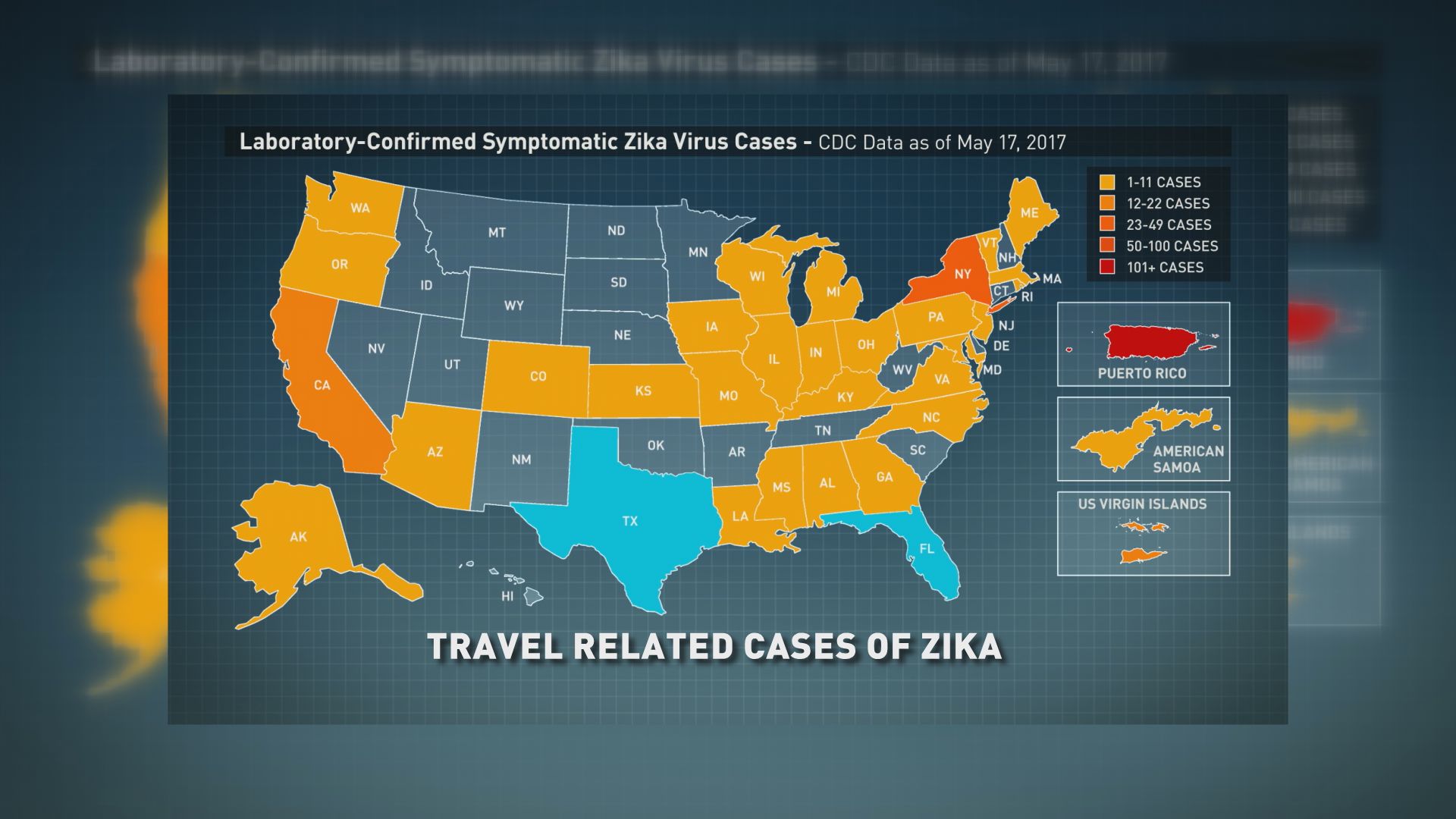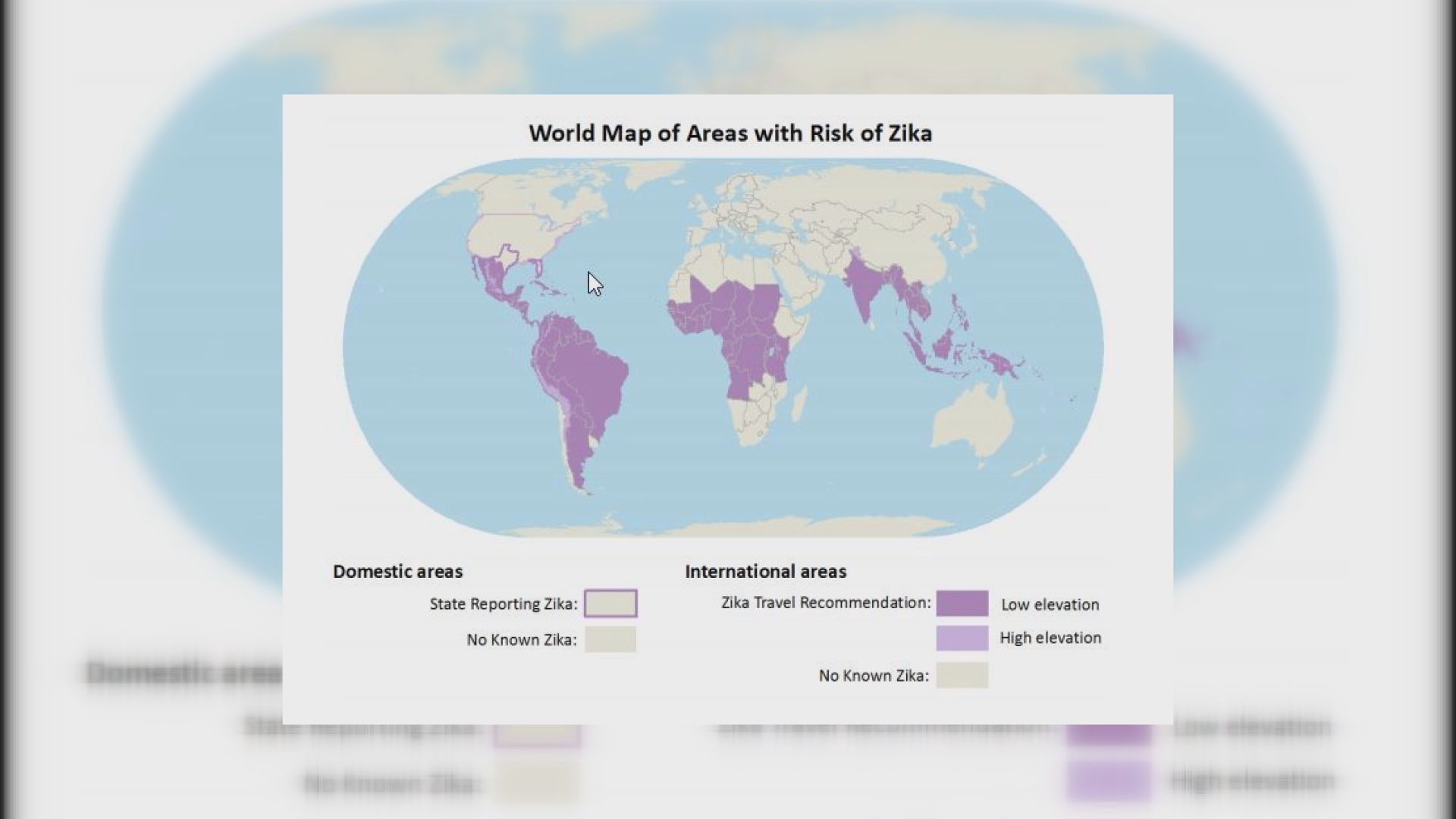Zika is an incurable disease spread mostly by the bite of an infected mosquito. Zika can be passed from a pregnant woman to her fetus, with an infection during pregnancy leading to certain birth defects. There is no vaccine or medicine for Zika and it can be sexually transmitted. Most people will have mild or no symptoms.
QUESTION: WFMY News 2 viewer, Robb Frederick asked a very simple question.
“What ever happened to Zika? Do I still need to be afraid of mosquitos?”
PROCESS: A check with the Centers for Disease Control reveals two states are considered high risk for contracting Zika: Texas and Florida. While there have been at least one Zika case in almost 35 states, those cases were travel related.
For 2017, 123 cases were overall in the United States, with 499 cases reported in Puerto Rico and the Virgin Islands. Since 2015, 5,285 cases of symptomatic Zika have been reported to the CDC and 36,583 have been reported in U.S. territories. The overwhelming amount of cases were reported in 2016.
Florida and Texas are the only two States where the virus has been locally contracted from mosquitoes.
On December 14, 2016, the CDC issued a travel notice for people living in or traveling to areas of Texas. On November 28, the Texas Department of State Health Services reported the state’s first case of local mosquito-borne Zika virus infection in Brownsville, TX.
Miami-Dade County was also listed as a travel precaution for Zika until June 2, 2017. The CDC said means there are no longer any travel recommendations related to Zika virus for Miami-Dade County, Florida, as the level of risk remains low. However, sporadic cases may still occur.

"For this reason, CDC recommends that people living in or traveling to Miami-Dade County continue to protect themselves," the website reads.
Dr. Peter Hotez, Dean of National School of Tropical Medicine, Baylor School of Medicine told CBS News, Texas, Florida and the Gulf Coast states should be vigilante, especially in the summer.
“It's been one of the warmest winters on record and so what that means is the numbers of mosquitoes that transmit ZIka the aedes agypti mosquitos are out in high numbers”
The story outside of the US is different. Travel notices were issued by the CDC for areas known for Zika, which include the US territories, parts of Asia and Africa, Central America, the Pacific Islands and South America.

The CDC said it’s not recommended for pregnant woman to travel to an area with risk of Zika.
So, if you’re traveling to a place at risk for Zika, take precautions. And, really, it’s best to take precautions against mosquitoes in general, as they can also carry West Nile Virus, the most commonly transmitted mosquito-related disease.
To protect yourself from bites, remove any standing water around your property and use Environmental Protection Agency (EPA)-registered insect repellents while outside. It's recommended to wear long-sleeved shirts and long pants and if traveling outside of the country, sleep under a mosquito bed net if air conditioned or screened rooms are not available or if sleeping outdoors.
SOURCES:
Centers for Disease Control
CBS News
Dr. Peter Hotez, Dean of National School of Tropical Medicine, Baylor School of Medicine

